Steam Library: Cultist Simulator
A simple three-dimensional table covered with blue cloth. Equally simple cards – without any special drawings and even without bright accompanying text. The most complex event timers by local standards – not only are they large, but they also tell us our entire history.
The brand new cultist simulator is made for those who love to read. And obviously, they don’t mind arranging a couple of card sacrifices to ancient gods.
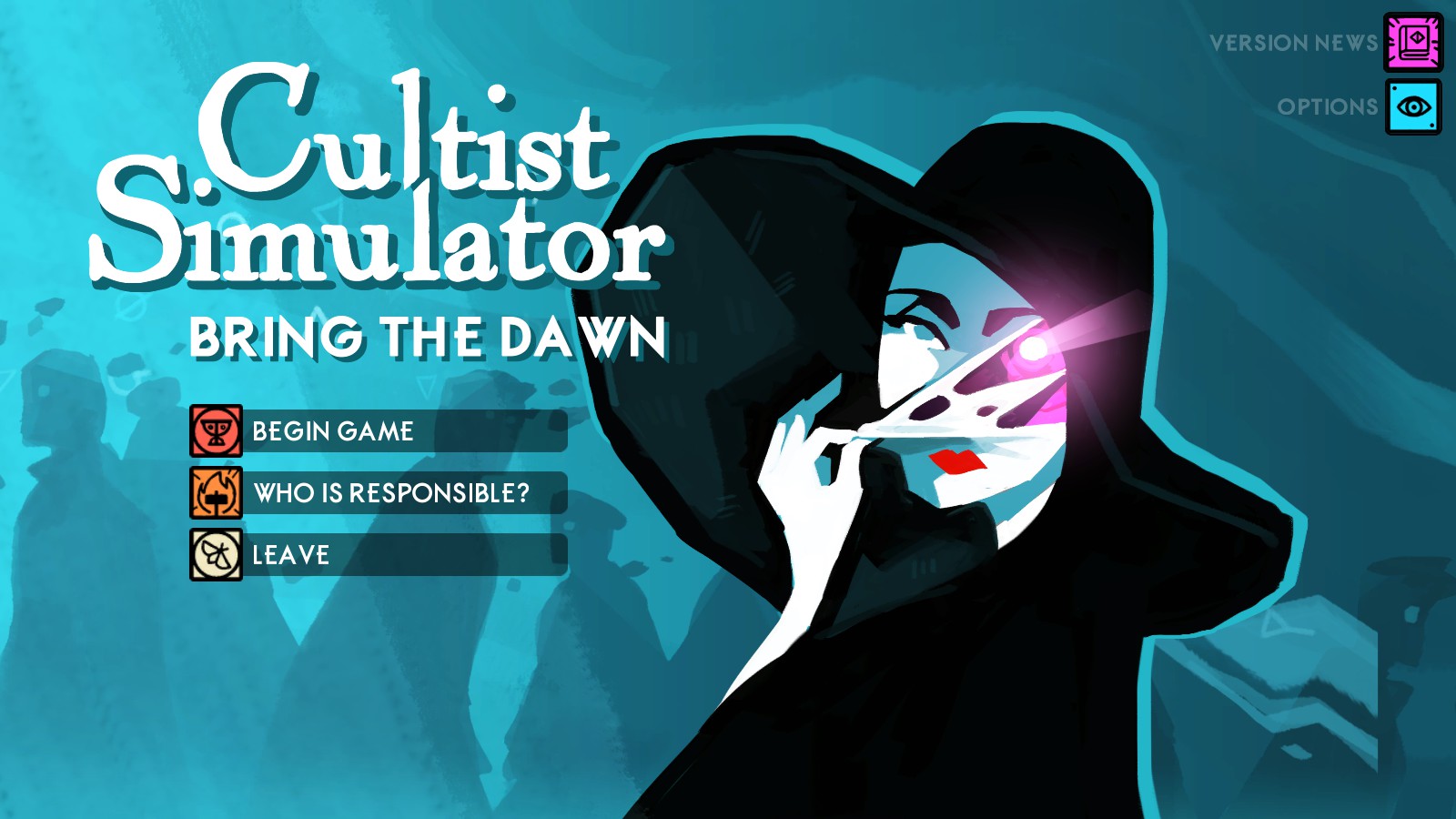
By the way, you will have to read in English. I was very surprised to find Cultist Simulator in the Humble Bundle newsletter. It seemed like Steam should have been advertising to me day and night about this indie game about occult adventures cleverly wrapped in a card game, but no. The store was afraid to show me banners for an entertainment that was not available in Russian.
And, I must say, they were at least partly right. Without knowledge of the main foreign language – or at least a sincere desire to learn it – there is nothing decisive to do here. Because the entire gameplay is largely based on the fact that you will get involved in the intrigue, succinctly told to you through cards, and you will want to delve into its depths, and naturally figure out half of the details yourself.
Jumping ahead, I will immediately say that in principle, cultist stories are worth occasionally looking up translations for words like “conjuring” and “sacrifice” in Google. So let’s not be shy about our level of knowledge and keep reading.
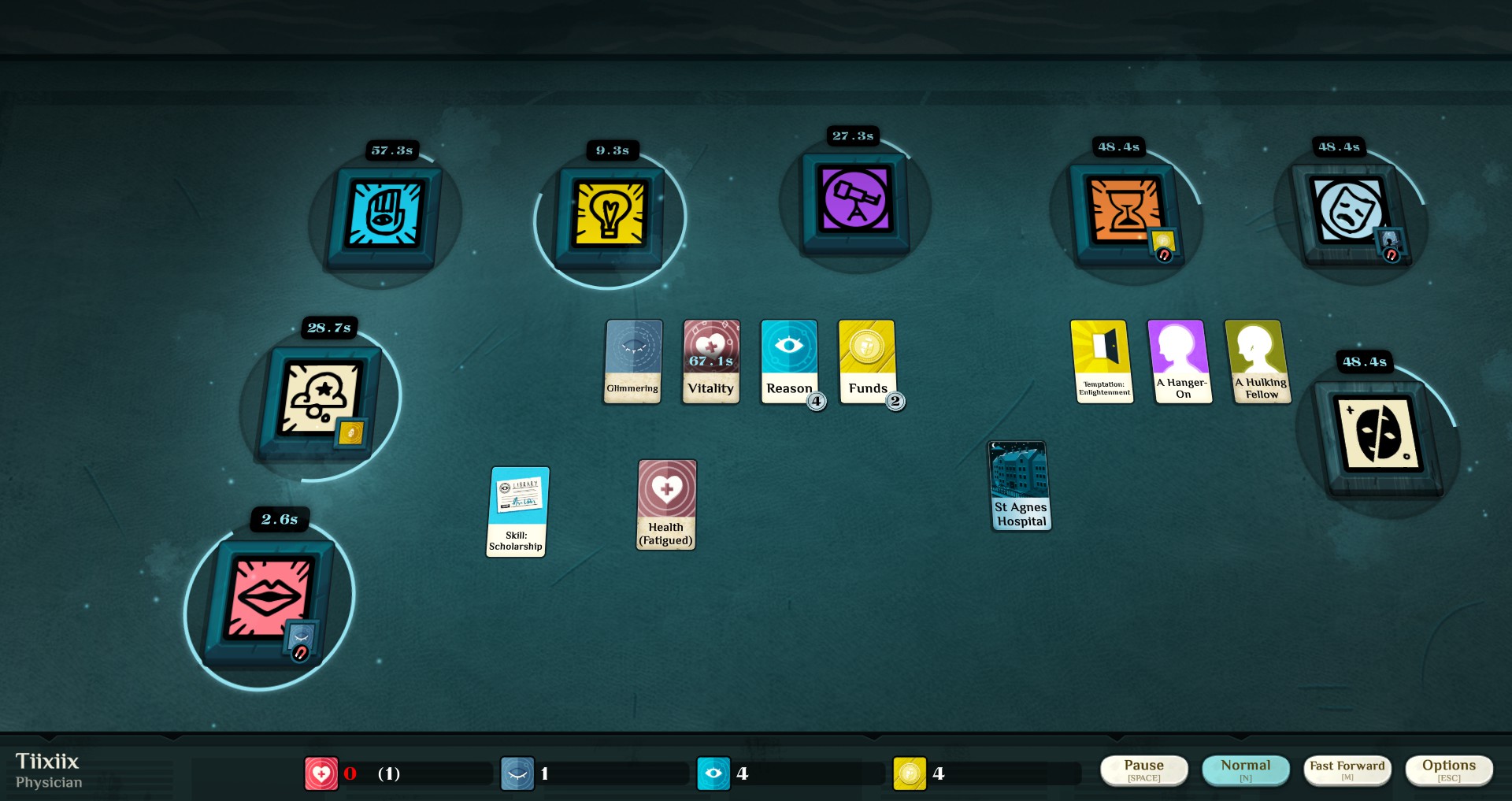
The descent of an individual mortal soul begins very simply. We are transformed into a young, poor, and unemployed student and placed behind the aforementioned blue table to determine our fate. In the game, there is exactly one card and exactly one event. And, strangely enough, it is a mundane job that we simply need to show up for. But already on the next move, a mysterious inheritance falls upon us, and as we unravel it, we will unfold a whole crazy solitaire on the table, illustrating the life of a rising star exploring otherworldly realms.
The system of the solitaire is cunning. It would be easiest to describe it by referring to a board game. “Ancient horror”, fortunately, the basic mechanics are almost the same, and the topic is exactly the same.
Our protagonist has four main resources at his disposal – his health, his imagination, his mind, and, of course, money. These virtues are expressed in familiar conditional units like “three health” or “five sanity”. We will explore the occult world and additional cards of the insane solitaire game to the extent of these powers.
In order to become the main local occultist, it is necessary to engage in various activities periodically. First and foremost – surprisingly enough – go to work. Or simply earn money through your talents. In parallel with socially useful work, you can indulge in various things. For example, sleep with a magical artifact under your pillow to better receive signals from the other side. Or read useful books on summoning Cthulhu.
Parallel to our active exploits in the life of a cultist, random events occur on their own. Sometimes depression sets in, sometimes detectives start investigating our exploits, sometimes the main character begins to lose touch with reality. Sometimes, of course, the opposite happens. Even lovers of mind-controlling tentacles appreciate warm sunny days, and when such happiness happens on the local streets, the soul of black magicians finds peace, and the body gains a boost of health.
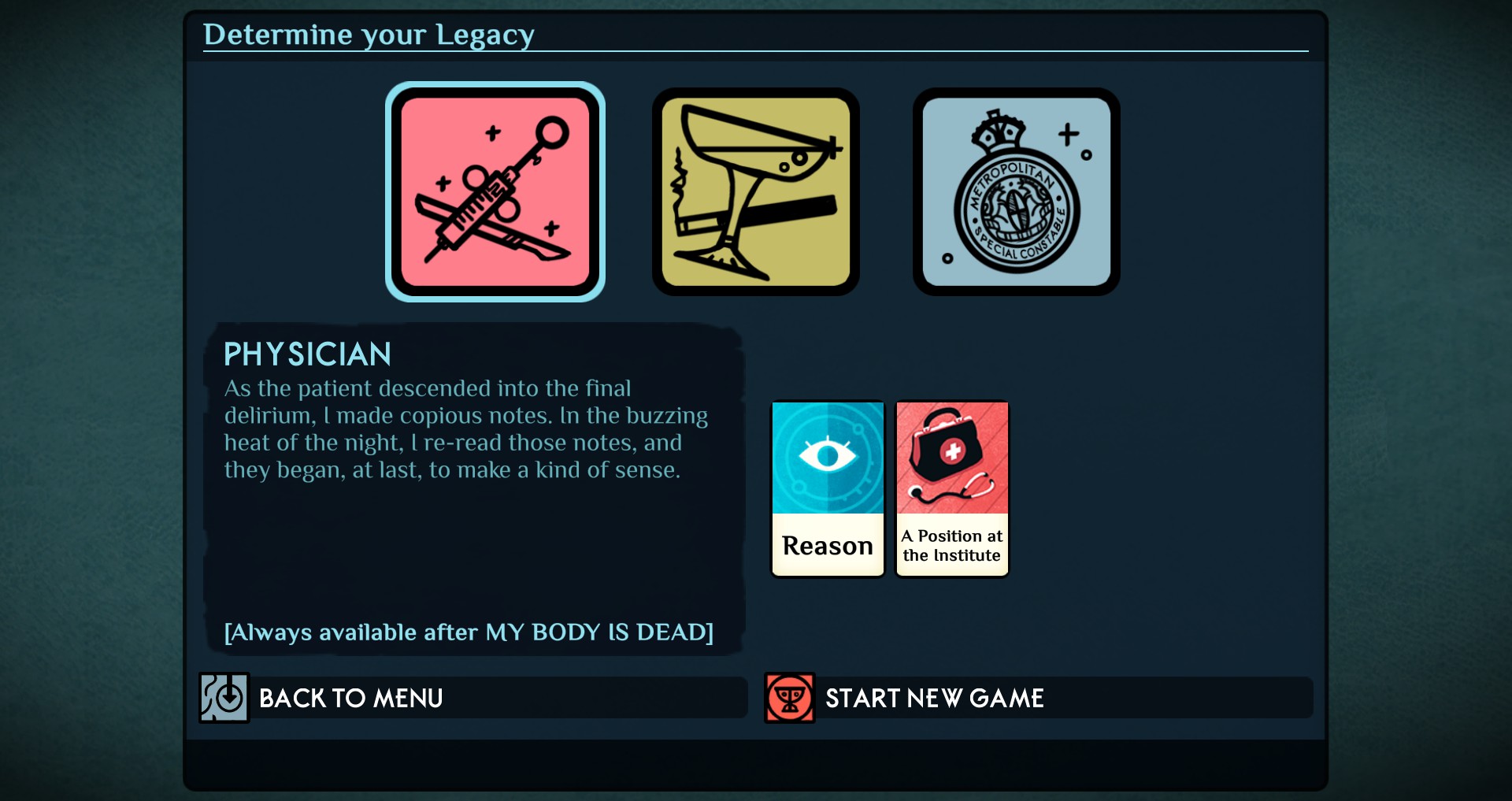
The further into the forest, the more unusual cards appear on the table. Occult books, which require learning some dead language before reading, ideological and not very handy artifacts, occult cabarets – everything you need for a rich and eventful life.
My first story took such a turn. A young nobody from nowhere was scraping by with odd jobs and saw no special prospects in life until a package with money, a promise of a great afterlife, and the address of a store with occult books fell on his head. The young man quickly dreamed of world domination and even bought a couple of random volumes with a Latin test, but he didn’t know the language, so he threw the books somewhere in the corner of his apartment.
The easy money ran out quickly, and the suddenly found job as an accountant didn’t excite the hero. However, after seeing visions and talking to the special person mentioned in the accompanying letter, he founded a secret society consisting of just two people and started writing commercially successful paintings.
Art is what ruined the young man. Trouble came not even with the order of magical law, one of whose members managed to see a well-known subtext in the protagonist’s works and began literally devouring the rumors spread by the public about the artist, and not the actual artwork. Without experiencing any earthly troubles, the hero, who became rich from his works, eventually lost the ability to distinguish between the world of fantasies and the real world and went mad.
The cult thing just didn’t work out. Despite becoming wealthy from paintings featuring local Cthulhu, the artist, for some reason, was terribly afraid to openly discuss his visions and his own collection of artifacts. The story of his followers showed that he should have behaved exactly the opposite. Conversations about ancient gods with random passersby only led to pleasant encounters, while drawings like “Sacrifice in the Full Moon,” as it turned out, interested primarily in hunters of bad heads. But how was the obsessed painter supposed to know all this?
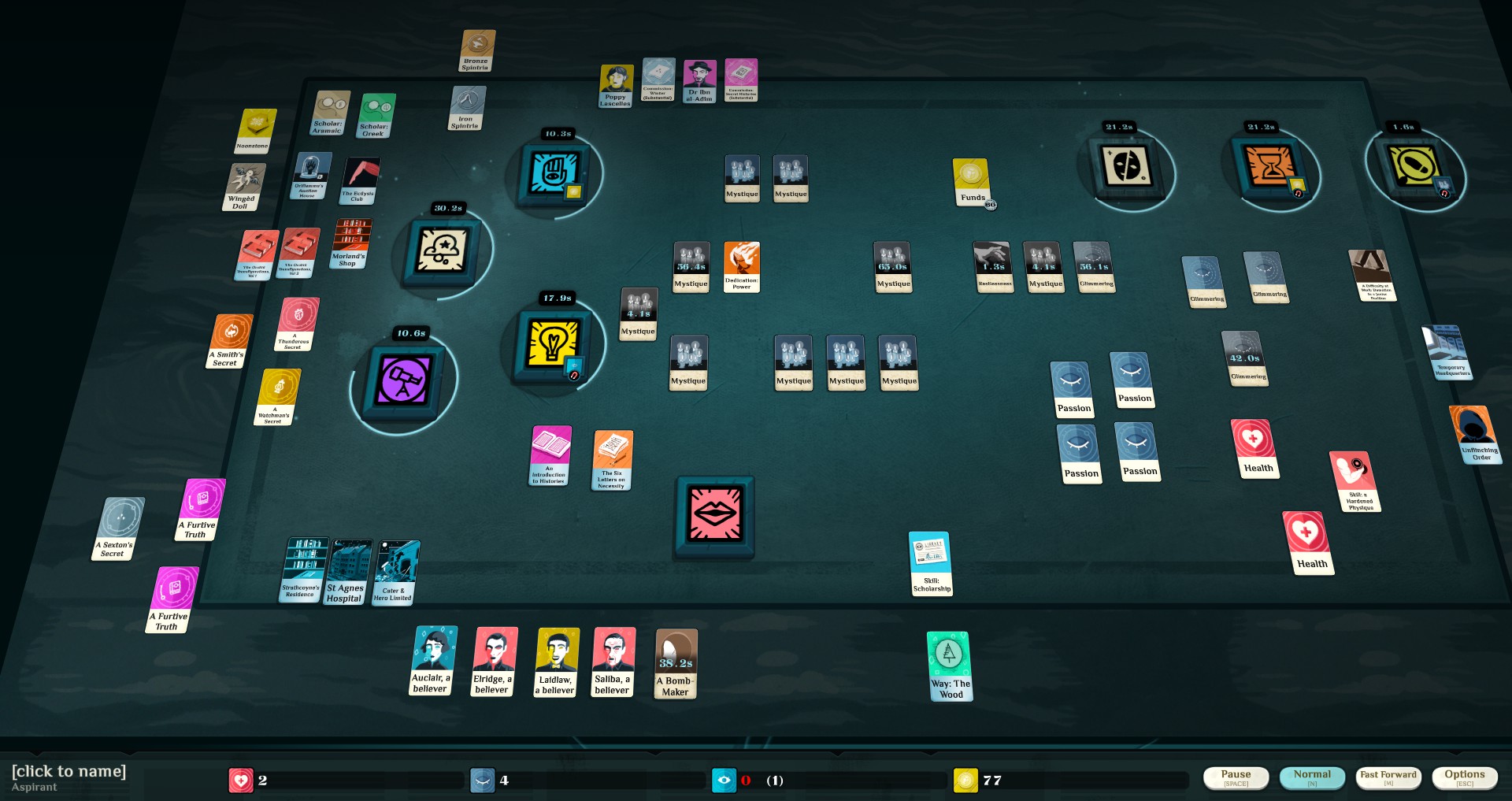
This story took me about an hour of playing with all the arriving and arriving cards on the table. Then there were adventures with expeditions to an ancient temple, an army of cultists, and encounters with practicing bloodletting ladies… For two hours, five hours, whole weekends.
The first time, I, of course, added the good half of the story myself. But this, it seems, is the main charm of Cultist Simulator. Mechanically, the game boils down to dragging cards from one place to another in different combinations. Sometimes in the context of puzzles, sometimes just to finally spend accumulated wealth. Nothing special. Even juggling cards, trying to keep up with local events with timers – the task is rather formal, fortunately, you can always press the nerve-saving “Pause” button and calmly figure out where each card should go.
But the anecdotes that unfold in cultist “Solitaires” are truly captivating. It’s a genre for enthusiasts, but any enthusiast of this occult joy of the beginning of the last century will definitely not be disappointed.
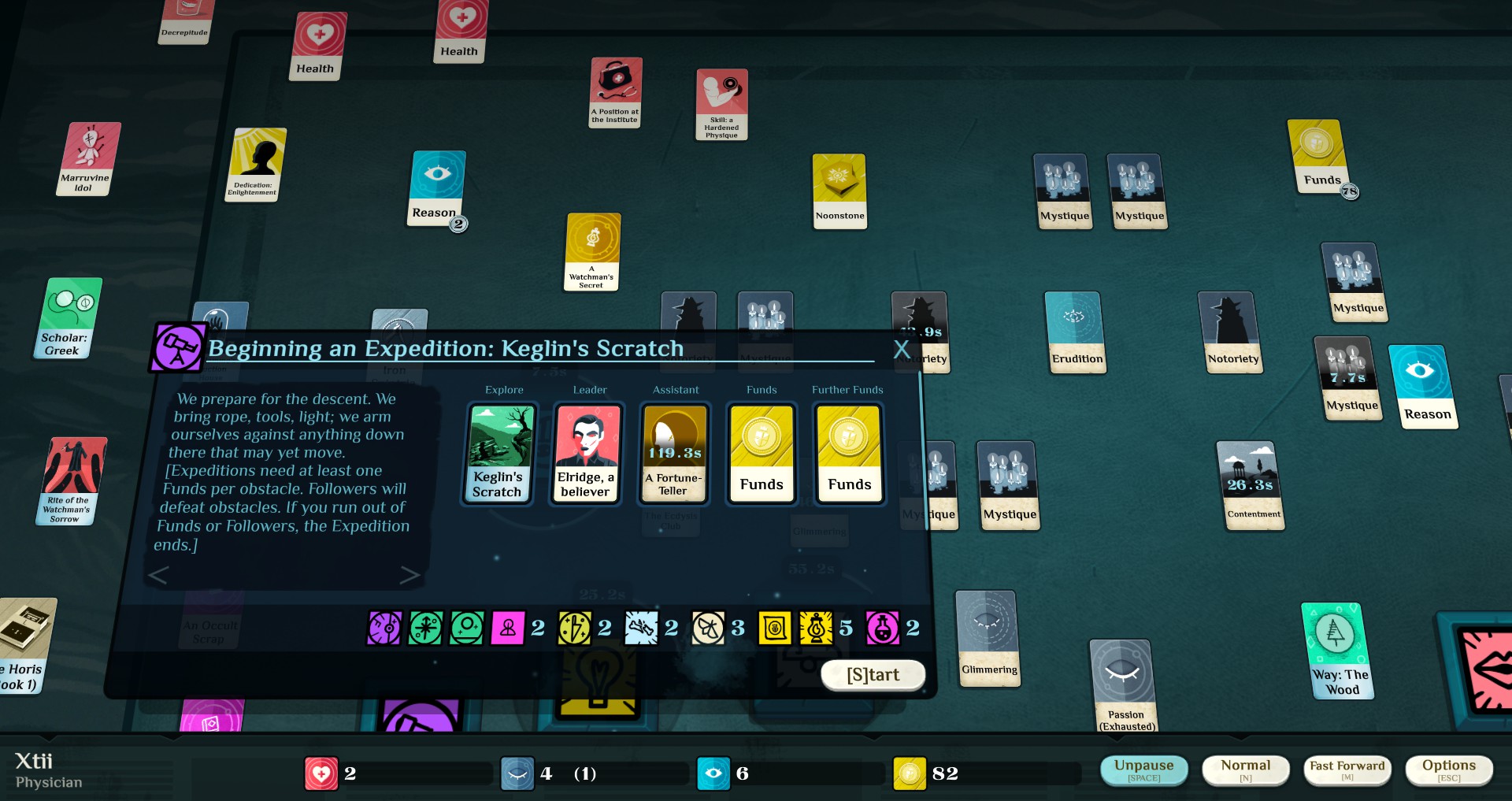
The only thing I would criticize is, surprisingly, the game interface. The designers tried to create a minimalist table with simple and free card manipulations, without any unnecessary clutter, but they left a couple of thorns in Cultist Simulator. My main annoyance is the periodically hiding cards under each other. Sometimes something important appears on the table, and you don’t see it simply because the game client decided to place the new card exactly under one of the old cards. It’s impossible to see exactly where the card is hiding. You either have to blindly search the entire table for the disguised infiltrator, or rely on your own memory to figure out which event the hidden novelty is needed for, and try to “highlight” it using the menu of that event.
The second eternal annoyance is some of the local puzzles. In general, everything is clear in the game: what the cultist simulator needs from you here and now, it will gladly tell you itself and sometimes even hint at what results to expect from a certain combination. But when the game wants to consume a card that you don’t currently have on the table, you’re stuck in half of the cases. Search, my friend, for the missing puzzle element randomly, poke around in all directions, and wait for good weather.
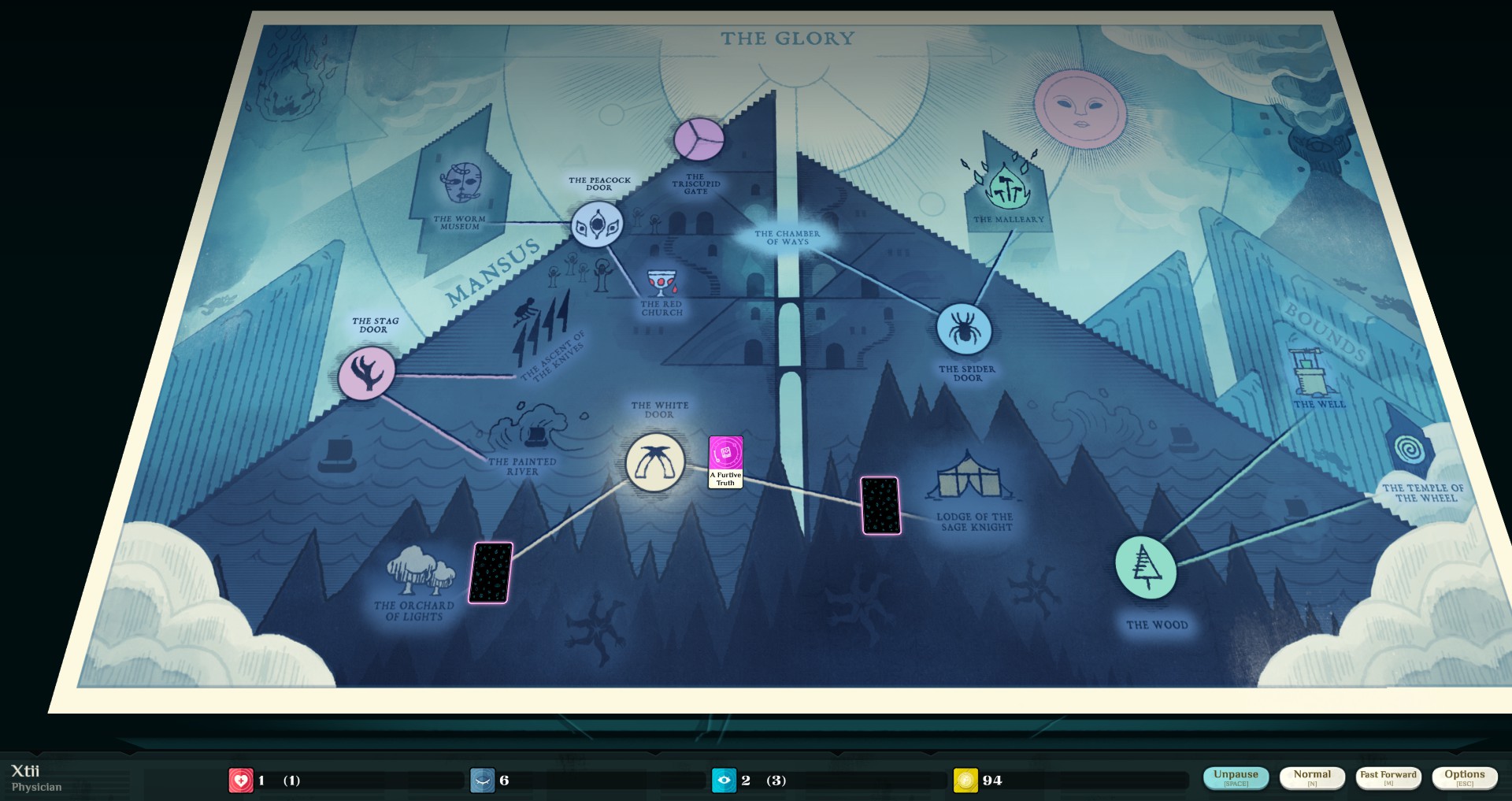
I’ll repeat, Cultist Simulator is more of a fantastical novel come to life rather than a game in the traditional sense, with a plot that we are free to piece together ourselves. Yes, with the framework of a card game. But then, it’s better to compare CS not with Hearthstone, but with tabletop games in the style of “Fury of Dracula”.
It’s an unusual format for video games, but definitely worth paying attention to. Personally, I have never regretted the money spent on Cultist Simulator.
Share
Discuss
More Reviews





